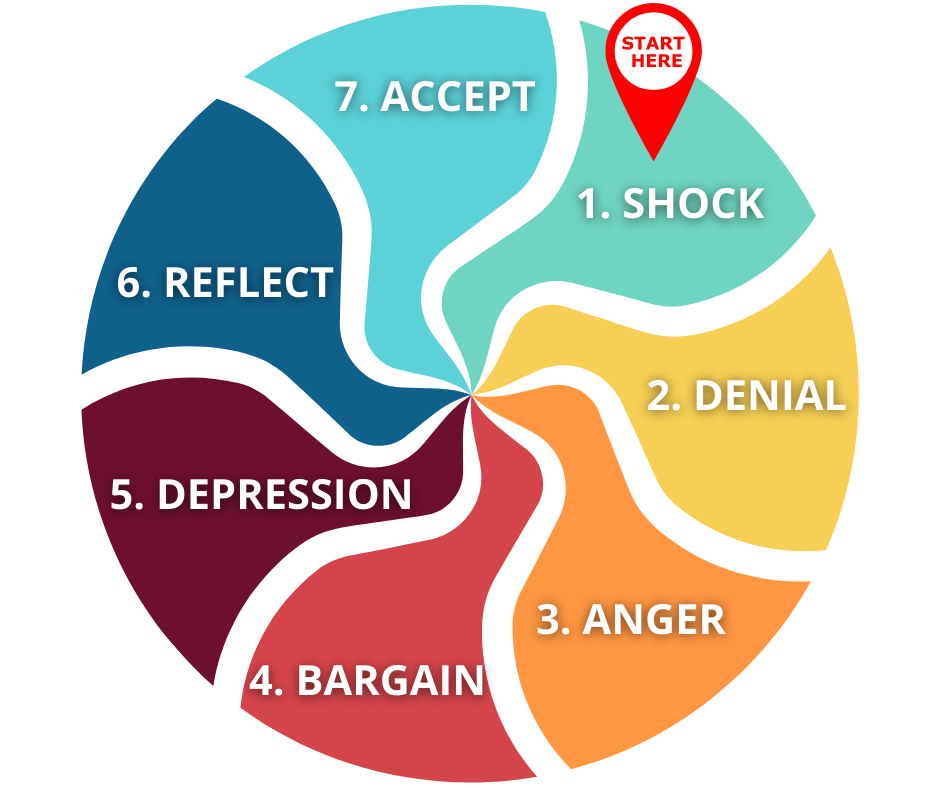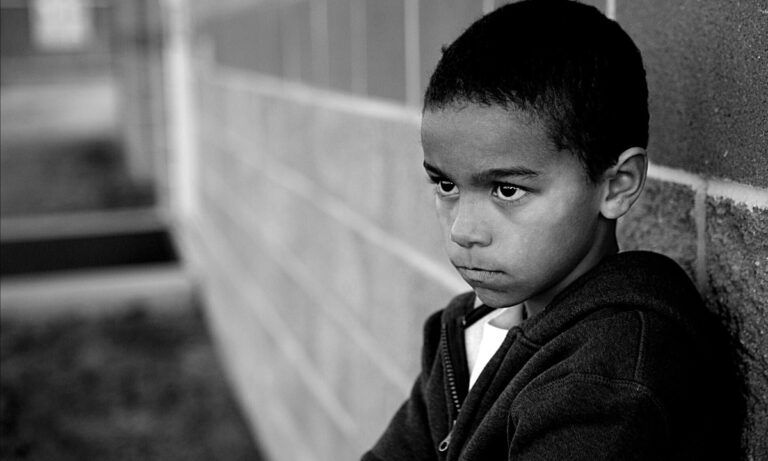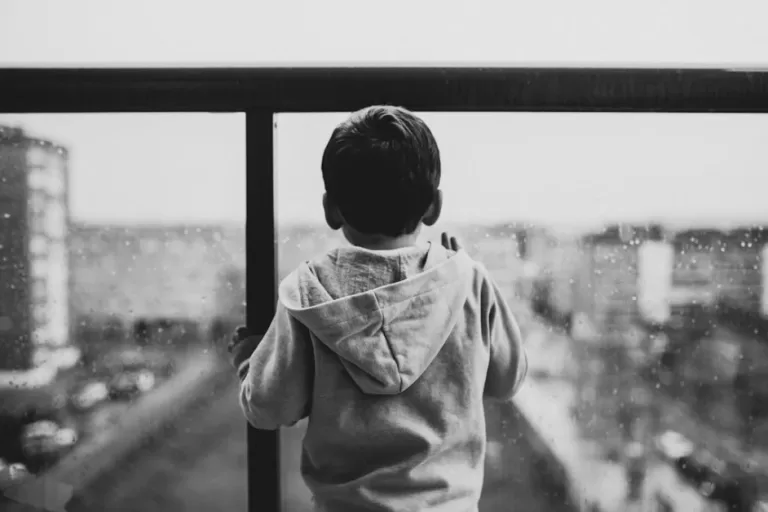Cycle of Grief: Causes, Stages, & Symptoms
Grief is not just an emotional cycle felt at death; it also occurs with extreme disappointment. Grief is a natural response to loss. It’s the emotional “cycle” we feel when something or someone we love is taken away. Grief affects people of all ages, but it is extremely traumatic and difficult for children to process. Grief comes in a cycle of emotions of shock, denial, anger, bargaining, depression, reflection, and acceptance. Experiencing these emotions is impossible to avoid, and we will all experience loss at some point. Children especially need understanding and support through their complex and confusing cycle of grief. When the loss is fresh or the trauma is retouched, we will go through this cycle multiple times daily. Over time, the cycle frequency will reduce, but the emotions will remain for extensive lengths of time.
Causes of Grief
- Death of a relative or friend
- Serious illness of self or loved one
- Relationship breakup
- Divorce or Separation
- Loss of trust
- Miscarriage/infertility/abortion
- Significant life or lifestyle changes
- Major relational conflicts
- Survivor’s Guilt
- Accident
- Loss or displacement of home
- Loss of physical ability/mobility
- Loss of financial security
- Loss of a close friend
- Loss of a job/career/business/dream
- Loss of a sentimental item
- Loss of a pet
- Incarceration of a loved one Severe disappointment
During anniversaries, holidays, or new disappointments, these losses can take an extra toll on the emotional condition of those we love. Often, people will cycle through all seven emotions many times a day when their pain is elevated. Knowing how to identify this cycle of grief is imperative to an empathetic response that “weeps with those who weep” (Rom 12:5). Here are some excerpts from a new social awareness training, “Steps to Innovative Interactions” our team has been helping Rising Steps with.

7 STAGES OF GRIEF
SHOCK
People in shock have minimal expressions or emotions. Causing numbness and a self-protective detachment from feelings. It is unavoidable, and some people have a more significant shock reaction than others, depending on the circumstances and if the loss is sudden. Sometimes, people in shock will act normally without any emotion despite the devastating circumstances because the reality of the news hasn’t sunk in yet.
DENIAL
Many people experience denial during grief; they know something has happened, but it doesn’t feel real. Sometimes it is described as having brain fog and can include poor concentration, forgetfulness, sleeplessness or sleepiness, no motivation, or an inability to make decisions.
ANGER
Many people feel robbed because of their losses, and this causes them to feel anger or fear. Anger and fear are closely intertwined emotions and can be easily mistaken for one another. Feeling anger during a loss is normal. Despite being common, people often feel embarrassed and try to hide their grief and anger. The complexity of anger is that some people who don’t practice empathy will minimize or demonize individuals who are angry. A trusted and empathetic friend is the best to vent your anger to.
BARGAIN
Grief causes bargaining by making promises to yourself, God, or others, asking for a chance to put things right. Often a sense of helplessness and hopelessness causes our thoughts to be consumed with, What if?
DEPRESSION
The complex mixture of emotions in grief often produces deep feelings of depression, isolation, and anxiety. A confusing mess of emotions causes many to check out emotionally and sink into a deep depression because the reality is too much to handle.
REFLECT
Reflection is looking honestly at the full depth of the loss. Reflection is the most honest look at the reality of the situation. True grief cannot occur without reflection. Those who stuff their emotions and don’t reflect on the magnitude of the loss and the situation will find themselves in an intense cycle of grief much longer with much more intense emotions. Reflection is a key component of healthy processing loss.
ACCEPTANCE
Acceptance is about realizing you can’t change the circumstances but can move on. It means acknowledging the facts of the situation and realizing you cannot change it.
Symptoms of Grief
- Irritability
- Numbness
- Bitterness
- Detachment
- Inability to show joy
- Problems in accepting reality
- Losing the sense of purpose
- Lack of trust Forgetfulness
- Lack of concentration
- Sleeplessness
- Lack of motivation
- Repetitive thoughts
- Inability to make a decision
- Shut down emotionally
- Isolating themselves
- Poor hygiene or physical care
- Minimal Communication

 Donate
Donate

